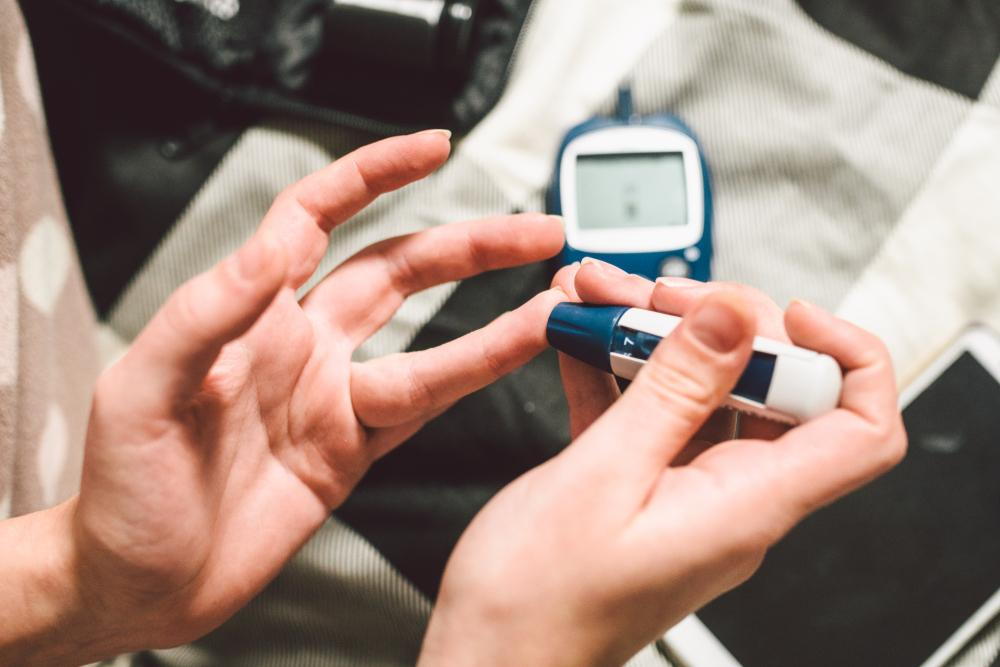
- posted: Feb. 14, 2020
If you or someone you love has just been diagnosed with Type 2 diabetes then you may be wondering what you can do to manage your blood sugar. Your family doctor will work with you to create a treatment plan based on your current health and lifestyle.
Medication is usually the main course of treatment, designed to improve blood sugar levels so that they stay within a healthy range. Of course, while some diabetes medication may work well for one person it won’t always be as effective for others. You will need to constantly monitor your blood sugar every day to see whether your medication is working.
Along with taking your diabetes medication, there are also other ways to manage this long-term condition and to improve not just your health but also your quality of life. Here are some things that you can do to maintain good health while living with diabetes.
A Balanced, Healthy Diet
A healthy diet is a key to unlocking good health, no matter whether you have diabetes or not. What you eat can either support how your body functions and fuel you or it can cause serious dysfunction and impairments over time. When you have diabetes, you need to understand how food impacts your blood sugar so you know which foods are safe to eat and which to avoid. Here are some tips to follow:
- Understand proper portion sizes and measure out the foods you eat
- Count your carbs, as carbs often have the biggest effect on your blood sugar and will influence your dose of insulin
- Create balanced meals that offer a variety of proteins, healthy fats, whole grains, vegetables, and fruits
- Know how to schedule your meals with your medication so you don’t deal with severe dips in your blood sugar
- Avoid sugary foods or drinks
Get Regular Exercise
It’s important for our patients to understand that every little bit of physical activity counts toward exercise. You don’t have to run out and get a gym membership. You just have to find simple ways to stay active throughout the day in order to reap the health benefits of exercise. This might include:
- Taking a brisk walk around the neighborhood
- Gardening
- Doing chores around the house
- Taking the stairs instead of the elevator
You only need about 30 minutes of exercise per day for the majority of the week in order to see an improvement in your health. Of course, before starting any kind of new exercise routine you will want to talk with your physician to make sure that you are healthy enough first. We can also recommend safe and effective exercises.
Medication
While your doctor will work with you to make sure you are getting the right medication, there are also things you should be doing to make sure that the medication you are taking is working properly. This includes:
- Knowing how to properly store your insulin so it isn’t exposed to extreme temperatures
- Tell your doctor if your blood sugar is too high or too low while taking this medication
- Talk to your doctor about taking over-the-counter medications, vitamins, or supplements beforehand to make sure that they are safe to take with your medication
If you want to talk to a doctor about how to properly manage your diabetes, then call our office today to schedule a consultation with us.

- posted: Feb. 14, 2020
If you or someone you love has just been diagnosed with Type 2 diabetes then you may be wondering what you can do to manage your blood sugar. Your family doctor will work with you to create a treatment plan based on your current health and lifestyle.
Medication is usually the main course of treatment, designed to improve blood sugar levels so that they stay within a healthy range. Of course, while some diabetes medication may work well for one person it won’t always be as effective for others. You will need to constantly monitor your blood sugar every day to see whether your medication is working.
Along with taking your diabetes medication, there are also other ways to manage this long-term condition and to improve not just your health but also your quality of life. Here are some things that you can do to maintain good health while living with diabetes.
A Balanced, Healthy Diet
A healthy diet is a key to unlocking good health, no matter whether you have diabetes or not. What you eat can either support how your body functions and fuel you or it can cause serious dysfunction and impairments over time. When you have diabetes, you need to understand how food impacts your blood sugar so you know which foods are safe to eat and which to avoid. Here are some tips to follow:
- Understand proper portion sizes and measure out the foods you eat
- Count your carbs, as carbs often have the biggest effect on your blood sugar and will influence your dose of insulin
- Create balanced meals that offer a variety of proteins, healthy fats, whole grains, vegetables, and fruits
- Know how to schedule your meals with your medication so you don’t deal with severe dips in your blood sugar
- Avoid sugary foods or drinks
Get Regular Exercise
It’s important for our patients to understand that every little bit of physical activity counts toward exercise. You don’t have to run out and get a gym membership. You just have to find simple ways to stay active throughout the day in order to reap the health benefits of exercise. This might include:
- Taking a brisk walk around the neighborhood
- Gardening
- Doing chores around the house
- Taking the stairs instead of the elevator
You only need about 30 minutes of exercise per day for the majority of the week in order to see an improvement in your health. Of course, before starting any kind of new exercise routine you will want to talk with your physician to make sure that you are healthy enough first. We can also recommend safe and effective exercises.
Medication
While your doctor will work with you to make sure you are getting the right medication, there are also things you should be doing to make sure that the medication you are taking is working properly. This includes:
- Knowing how to properly store your insulin so it isn’t exposed to extreme temperatures
- Tell your doctor if your blood sugar is too high or too low while taking this medication
- Talk to your doctor about taking over-the-counter medications, vitamins, or supplements beforehand to make sure that they are safe to take with your medication
If you want to talk to a doctor about how to properly manage your diabetes, then call our office today to schedule a consultation with us.
